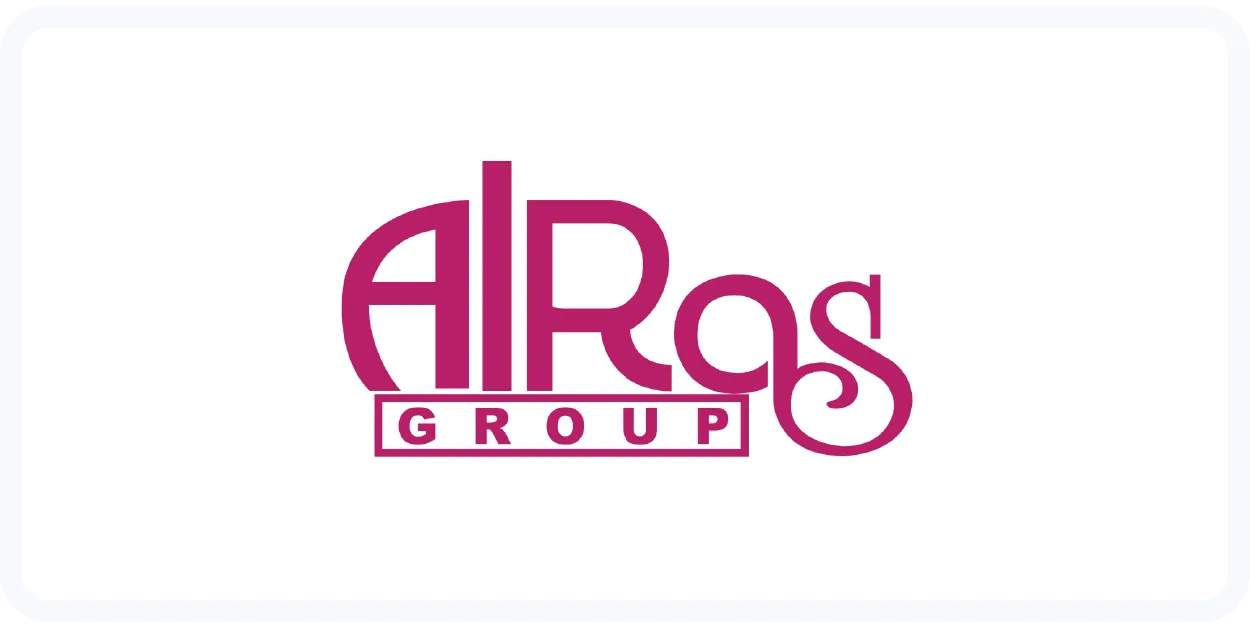- Home
- Business Setup in Saudi Arabia
Business Setup in Saudi Arabia (KSA) with 100% Foreign Ownership.
Business setup in Saudi Arabia follows a structured regulatory framework designed to simplify foreign investment and company formation.
Our Expertise in Business Setup in Saudi Arabia.
We are a business consulting firm supporting foreign investors, startups, and multinational companies with business setup and company formation in Saudi Arabia. We help businesses with the regulatory process, providing clear guidance and practical support at every support.
Our expertise covers regulatory licensing, legal structuring, tax and workforce compliance, and post-incorporation support. From initial approvals to ongoing operational requirements, we help businesses confidently navigate Saudi Arabia’s investment landscape.
Requirements for expanding your business to Saudi Arabia
The requirements differ based on whether you are an established business or a startup:
Foreign Company Subsidiary/Branch Setup
- Trade License from Home Country (legalized and embassy-attested)
- Audited Financial Statements of last fiscal year (legalized and attested)
- Board Resolution expansion into Saudi Arabia (legalized and attested) (Only in Special cases)
- Company’s Articles of Association (legalized and attested)
- Shareholders’ and Directors’ Passport Copies
Ministry of Commerce – Company Name Registration
- Proposed names for the company in Arabic and English
Articles of Association (AoA) (for LLC) OR Branch Documents
- Drafted and Notarized
Commercial Registration (CR) Application
- GM Appointment
- Signed Articles of Association (AoA)/ Branch Resolution
- Copy of MISA License
Post-Incorporation Compliance Registrations
- GM Visit to Saudi Arabia
- Iqama Processing
- Ministry of Human Resources and Social Development (HRSD) account
- ZATCA VAT/Tax Registration
- Government Online Portal Registration: Absher, Qiwa, Muqeem, and Mudad
Office Lease Agreement (Full Office Space)
- A physical office or coworking space is mandatory
Initial Requirements
- Endorsement Letter from VC or licensed incubator
- Supporting Documents: Letter of intent, startup brief, pitch deck
MISA Entrepreneurship License Application
- Copy of the founder(s) passport(s)
- National ID for any Saudi partner (if applicable)
- Summary of business plan or description of activity
- Email and contact details
Ministry of Commerce – Company Name Reservation
- Proposed names for the company in Arabic and English
Articles of Association (AoA)
- Drafted and Notarized
Commercial Registration (CR) Application
- GM Appointment
- Signed Articles of Association (AoA)
- Copy of MISA License
Chamber of Commerce Registration
- Copy of CR
- Sample of Company seal/stamp
Post-Incorporation Registrations
- GM Visit to Saudi Arabia
- Iqama Processing
- Ministry of Human Resources and Social Development (HRSD) account
- Government Portals Activations
- ZATCA VAT/Tax Registration
- Office Lease Agreement (Physical or Coworking Space)
Want to Know the Cost of Starting a Business in Saudi Arabia?
Our cost calculator helps you determine the cost of starting a business in Saudi Arabia and how much budget to set aside during your market entry in the Kingdom.
5 Steps to Set Up a Business in Saudi Arabia.
Setting up a business in Saudi Arabia follows a defined regulatory workflow covering investment licensing through MISA, commercial registration with the Ministry of Commerce, and statutory compliance onboarding. The key steps include obtaining an investment license, reserving and registering the company’s name, drafting and notarizing the Articles of Association, acquiring a Commercial Registration (CR), and registering with the Chamber of Commerce. Additionally, it is essential to comply with government regulations, especially those related to taxation and social insurance.

Choose your business activities and legal structure: Choose the specific business activities your company will provide in Saudi Arabia and the right legal structure for your company [e.g., Sole Establishment, Limited Liability Company (LLC), Joint Stock Company (JSC), Branch of a Foreign Company, Simplified Joint Stock Company (SJSC), Joint Venture]
Prepare Documents: Collect the required documents, including the company's Memorandum and Articles of Association, business license, certificate of incorporation, board resolution, and Power of Attorney.
Apply for a MISA License: Foreign investors must first secure a MISA license.
Name Reservation: Reserve your company’s name with the Ministry of Commerce.
Notarize Documents: Notarize your Articles of Association and all legal documents.
Commercial Registration (CR):Get your Commercial Registration certificate from the Ministry of Commerce.
Chamber of Commerce Registration: Register your company with the Chamber of Commerce.
National Address Registration: Register your company’s national address.
Iqama Visa (residency permit): Your company’s general manager will need to obtain a residency permit (Iqama).
Government records: The GM must be added to the company and government portals.
Tax and Zakat registration: Register with the General Authority of Zakat and Tax (GAZT).
Social Insurance (GOSI) registration: Register with the General Organization for Social Insurance (GOSI).
Ministry of Human Resources registration: Register with the Ministry of Human Resources if you plan to hire staff.
Corporate Bank Account: Open a corporate bank account.
Maintaining the Government Portals
Filing the taxes and following the compliance
Annual Audit Filings
By following these steps and complying with Saudi Arabian regulations, you can successfully set up and run your business.
Types of Legal Structures in Saudi Arabia
Choosing the right legal structure is a vital step in business setup in Saudi Arabia. Your decision will influence ownership, liability, regulatory requirements and how you run and grow your business. Here’s a summary of the main legal structures available, each designed to suit different needs and goals:
Limited Liability Company
A Limited Liability Company is a separate legal entity where the liability of shareholders is limited to their investment.
Branch of a Foreign Company
A Branch of a Foreign Company is a representation of a foreign parent company that operates in Saudi Arabia under the parent’s liability.

Joint Stock Company (JSC)
A JSC is perfect for businesses with large capital, providing limited liability for its shareholders.The structure is more complex as the shares can be listed for public investment, and the operations follow higher standards similar to a public listed company.

Joint Ventures & Partnerships
Joint Ventures & Partnerships – these structures enable collaboration between local and foreign entities to combine resources, share responsibilities, and work towards a defined goal.
Sole Establishment (Only for GCC Nationals)
A Sole Establishment is run and owned by a single person, a GCC national, who is fully responsible for all business obligations and liabilities of the company.
If you’re still evaluating which sector to enter, explore profitable business ideas in Saudi Arabia aligned with Vision 2030 and current market demand.
Setting up a Foreign Company in Saudi Arabia
Here’s a breakdown of four common approaches to setting up a foreign company registration, along with estimated timelines:

Your Business Setup in Saudi Arabia is just one step away
Afreen Sheikh, Business Consultant
Saudization Requirements and Employee Registration
Saudization policy (Nitaqat) is mandatory for all foreign and GCC companies operating in Saudi Arabia. The activities mentioned in your company’s trade license determine the required ratio of Saudi nationals to expatriates. Based on this, the government portal sets the percentage of Saudi employees that must be part of the company’s workforce.
Compliance is monitored and managed through key portals, which companies are required to keep updated regularly:
- QIWA – This portal, managed by the Ministry of Human Resources and Social Development (HRSD), is used to monitor Saudization levels and register employees.
- General Organization for Social Insurance (GOSI) – This organization handles registrations of employee insurance and contributions. Filing with GOSI is mandatory for all companies as part of their compliance obligations, and it applies to every employee.
- HRSD Registration – This process ensures that businesses follow labor regulations, meet Saudization quotas, and fulfil employee requirements.
Saudization Levels (Nitaqat Program)
Companies are categorised into levels according to their Saudization compliance:
- Platinum and Green: Get benefits like quicker visa processing, easier work permit approvals, and better access to esential labour-related
- Yellow and Red: A sign to improve Saudization levels for easier hiring, renewing visas, and other related processes.
Benefits of Setting up a Business in Saudi Arabia.
Saudi Arabia is becoming the top choice for investors and companies. Here’s why they opt for the kingdom:
100% Foreign Ownership
100% Foreign Ownership are allowed in most of the sectors, removing the need for a local partner.
Tax Benefits
The kingdom offers 20% corporate tax, no personal income tax, and a standard VAT rate of 15% with certain exemptions for exports and international services.
Record Growth in Business Registrations
In Q1 2025, Saudi Arabia saw a 48% year-on-year rise in new business registrations, with 154,638 commercial records issued.
Strategic Economic Hubs
71% of new commercial registrations took place in Riyadh, Makkah and the Eastern Province, making these places ideal for business setup.
Not sure which city suits your business best? Compare the top cities in Saudi Arabia to start a business.
Women in Business
45% of the newly registered institutions are owned by women, reflecting the kingdom’s commitment to inclusivity and diversity in entrepreneurship.
Foreign Investment Magnet
Saudi Arabia attracted SAR 54.4 billion (USD 14.5 billion) of foreign direct investment in just the first nine months of 2024, indicating its appeal in global businesses.
If you’re still evaluating which sector to enter, explore profitable business ideas in Saudi Arabia aligned with Vision 2030 and current market demand
Business Expansion in Saudi Arabia: Guide for Foreign and GCC Nationals
Saudi Arabia supports a variety of business expansion models and has its own process and requirements. Whether you are expanding an existing business, bringing a GCC-owned business or starting a business in Saudi Arabia as a GCC national, here’s how to set up a company in Saudi Arabia:
Expanding an existing foreign company in Saudi Arabia
Foreign companies looking to expand into Saudi Arabia can set up a branch office or subsidiary. The process involves:
- Obtaining a Foreign Investment License from the Ministry of Investment (MISA)
- Submitting attested Commercial Registration and financial statements from home country
- Registration with the Ministry of Commerce and other government bodies such as Zakat, Tax and Customs Authority (ZATCA) and General Organization for Social Issuance (GOSI)
- Appointing a local as General Manager
- Opening a corporate bank account and getting a physical office address
Many sectors allow for 100% foreign ownership with the right approvals. The process is meant to make the entry easy but careful attention is needed to documentation and compliance are required for a successful setup.
UAE-based entrepreneurs can also explore our dedicated guide on starting a business in Saudi Arabia from the UAE
Expanding an existing business to Saudi Arabia owned by GCC citizens
It is easier for Businesses completely owned by GCC nationals to enter the Saudi market. The process involves:
- Setting up a branch office or subsidiary, based on business needs
- Submitting commercial registration and supporting documents, attested by relevant authorities
- Registering with Saudi authorities and adhering to local regulations, including Saudization and taxation
- Foreign investment license is not required for GCC Nationals, making the process easier and faster.
GCC nationals starting a business in Saudi Arabia
GCC nationals looking to set up a new business in Saudi Arabia get the same rights as Saudi citizens. The process involves:
- Selecting the suitable business structure
- Preparing required documents and reserving business name
- Registering with the Ministry of Commerce and other relevant authorities
- Securing licenses and regulatory requirements specific to your sector
Key Regulatory Authorities Involved in Business Setup in Saudi Arabia
Starting a business in Saudi Arabia requires working with key government agencies that assist in regulating and supporting your company

This is the starting point for foreign investors. MISA issues the necessary investment license that allows 100% foreign ownership in many sectors. It grants the investor profile needed to start operations in the Kingdom.

In charge of company registration and issuing commercial registration (CR). MC makes sure that your business adheres to Saudi commercial laws and manages trade licensing.

Responsible for developing and managing industrial cities and technology zones. Modon provides infrastructure, land, and facilities for manufacturing and logistics companies, supporting investors in setting up operations within specialised industrial areas.

Manages all tax-related matters in Saudi Arabia, such as corporate tax, value-added tax (VAT), zakat, and customs duties, ensuring your company fulfils tax requirements.
While each authority has a defined role, delays often arise when registrations are completed in the wrong sequence or when business activities are incorrectly classified across government platforms. In practice, approvals from one authority can affect the timelines, documentation, or requirements of another. Understanding how these authorities interact helps businesses avoid rework, application revisions, and post-registration compliance issues that may not be visible on individual government portals.
To understand the legal, cultural, and operational environment beyond registration, read our detailed guide on doing business in Saudi Arabia.
How Our Expertise Benefits Your Business?
- 8+ Countries Presence
- 17+ Years Experience
Analytix is your reliable business support system for establishing a 100% foreign-owned businesses in KSA under the MISA/SAGIA guidelines.
Our business consultants guide you through business setup and company formation consultants in Saudi Arabia, including subsidiary company, Limited Liability Company, GCC company, branch of a foreign company, and dual ownership company.






We are featured
We are featured on these News papers!
Planning To Set Up Business in Saudi Arabia?
If you’re planning to expand your business to Saudi Arabia, business setup consultants in Saudi Arabia can guide you through the whole process. Whether you need help with KSA business setup services or figuring out where to invest, we’ve got you covered.
Clients We Have Served.
We helped to expand 2500 companies from 14 countries across 20 industries.




























- FAQs
Frequently Asked Questions
If your question is not addressed here, please feel free to reach out to us. We value your inquiry.
Here’s a concise version of the types of investor licenses for businesses in Saudi Arabia:
- Industrial License: Needed for manufacturing or industrial activities.
- Service License: For service sectors like consulting, IT, finance, healthcare, and education.
- Trading License: Required for trading, importing, exporting, and distribution.
- Contracting License: For construction and contracting services.
- Real Estate License: For real estate development and management.
- Energy License: Energy sector, including oil, gas, and renewables.
- Telecom & IT License: Telecommunications and information technology
- Tourism License: For tourism, travel services, and hospitality.
- Media License: Media, publishing, broadcasting, and advertising.
- Medical License: Covers healthcare services, clinics, and equipment
- Educational License: Establishing educational institutions
The time required to complete the licensing process for a business in Saudi Arabia varies. It can take a maximum of 30 days, depending on factors like business type, documentation, and other processing. After application submission, there’s a review period, potential additional approvals, legal steps, and setting up the physical location. Staying updated with authorities and having complete documentation can help expedite the process.
Trade licenses get issued within a span of 7-15 days post the application submission.
The cost of setting up a business in Saudi Arabia is mainly dependent on several factors, like the type of business you plan to establish, industry to which the business belongs, location you plan to establish the business, and many other specific requirements. In 2024, the costs are mainly influenced by Saudi Arabia’s efforts to streamline its vision 2030 objectives and attract foreign investment.
Let’s break down the cost of setting up the business in KSA
- The cost of registering a limited liability company (LLC) with the Ministry of Commerce and Investment in Saudi Arabia in 2024 is expected to be between SAR 10,000 to SAR 20,000 (which is approximately USD 2,700 to USD 5,300).
- Additional licensing fees ranging from SAR 5,000 to SAR 30,000 (in USD 1,300 to USD 8,000) may be added to the total cost based on the nature of the business and the industry sector.
- The rent for office or commercial space is normally between SAR 150 to SAR 500 (USD 40 to USD 133) per square meter per year. And this can vary depending on the location and size of the building.
- The lowest capital requirement for a single-shareholder LLC and multi shareholder LLCs is around SAR 300,000 (USD 80,000) and SAR 500,000 (USD 133,000) in 2024.
- Saudi Arabian General Investment Authority (SAGIA) has set high capital requirements for certain industries or sectors in the Kingdom
- Additional costs like Legal and consultancy fees for company formation, licensing approval, etc. also have to be arranged and this can range from SAR 20,000 to SAR 50,000 (USD 5,300 to USD 13,300), depending on the complexity of the business setup.
- The cost for Accounting and auditing services is around SAR 10,000 to SAR 30,000 (USD 2,700 to USD 8,000) per year.
- Work visa and residency permit fees for each foreign employees hired has to raised by the business and this is expected to be around SAR 5,000 to SAR 10,000 (USD 1,300 to USD 2,700) per employee
- It’s important to be aware of the incentives and reduction given by the Saudi government for businesses operating in specific sectors or locations of the country like reduced fees, tax exemptions, or subsidies, for businesses. And these incentives can have a great impact on the overall cost of business setup and operations.
An office address of your company or firm is required for registering your business and official business communications.
The corporate tax rate in Saudi Arabia can vary depending upon several factors as listed below:
- For the companies owned by the Saudi nationals or citizens of other Gulf Cooperation Council (GCC) countries the corporate tax rate is 20%
- The corporate tax rate is 20% for companies owned by non-GCC nationals on the share of non-Saudi or non-GCC partners and nil for the share held by Saudi or GCC partners.
- The corporate tax rate is 30% for companies indulged in the activities of natural gas investment activities
- For oil and other hydrocarbon production companies, the corporate tax rate is 85%.
Though there are many tax rates in Saudi Arabia as listed above, it is important to note that the Kingdom of Saudi Arabia has signed double taxation avoidance agreements with several countries, and this can leave a great impact on the existing tax rate for foreign companies in KSA.
Also for businesses operating in specific sectors or locations in the Kingdom, like economic cities or industrial zones, many tax incentives and other exemptions are available.
There are many ministries responsible for setting up a business in Saudi Arabia like the few mentioned below:
- The Ministry of Commerce and Investment (MCI) is responsible for the registration of the companies and licensing them and regulates the commercial activities in the Kingdom.
- The Ministry of Human Resources and Social Development (MHRSD) oversees the work permits, labour laws, and visa requirements required for foreign employees.
- Issuance of permits, regulation of real estate activities and approvals for various construction and development projects are handled by the Ministry of Municipal and Rural Affairs and Housing
- The Saudi Arabian General Investment Authority (SAGIA) oversees the promotion of foreign investment in Saudi Arabia and lends support and incentives to foreign investors.
Besides these ministries, other ministries like the Ministry of Industry and Mineral Resources, the Saudi Food and Drug Authority, or the Capital Market Authority, would also be involved depending upon the industry or sector chosen.
Yes, the companies are allowed to engage in multiple activities in Saudi Arabia, but are subject to certain conditions and regulations set up by The Ministry of Commerce and Investment (MCI).
Certain activities may require specific permits, licenses, or approvals from relevant authorities depending upon the nature of the businesses. For example, industries like finance, healthcare, or energy-related activities are subject to additional regulatory requirements.
While setting up a business in the Kingdom of Saudi Arabia, you have to clearly define the business activities planned in the company’s Articles of Association or commercial registration. Specific approvals from the MCI and amendments to the commercial registrations are required for any changes or additions to the business activities mentioned.
Seeking professional help from legal or business setup professionals would help ease the process and ensure compliance with all regulations.
There are many business structures available in Saudi Arabia for foreigners each with its benefits and limitations. Below are the most common structures available for foreigners in the country:
- Limited Liability Company (LLC):
This business structure offers limited liability protection for its shareholders. It requires a minimum of two shareholders and the percentage of foreign ownership can range from 0% to 100%, depending on the sector chosen.
- Branch Office:
A foreign company can set up the extension of a parent company in Saudi Arabia. Here it would be treated as a permanent establishment and no separate legal entity is required.
But requires sponsorship from the local Saudi service agent.
- Professional Company:
Foreign ownership for professional company can range from 0% to 100%, depending on the sector and it would be set suitable for professional services like consulting, engineering, or legal services
- Joint-Stock Company:
This type of business structure is best suitable for larger businesses with multiple shareholders. The minimum capital requirement for a Joint Stock company is SAR 5 million. The foreign ownership for these types of companies can range from 0% to 100%, depending on the sector
- Joint Venture:
A joint venture can be formed by a foreigner by establishing a partnership with a local Saudi partner. The percentage of ownership and control are shared based on the agreement kept between both partners.
Yes, the authorized signatory is physically required in order to open the bank account in Saudi Arabia. For other procedures the physical presence is not required.
The popular entity options available for businesses in Saudi Arabia are:
- Limited Liability Company (LLC):
This structure is popular among local and foreign investors as it offers flexibility and limited liability protection. LLCs can either be completely foreign-owned or can be done in partnership between Saudi and foreign shareholders. It is suitable for a wide range of business activities and is the most preferred one among different sectors.
Learn more about LLC company formation in Saudi Arabia to understand the process, requirements, and timelines.
- Branch Office:
A branch office is often considered as an entry point to the Saudi market by the Foreign companies. It is best suitable for businesses that wish to have a direct presence in the country without creating a separate legal entity. But a local Saudi service agent or sponsor is required to set up a branch office in the Kingdom.
- Joint-Stock Company:
This is most preferred by larger businesses which have multiple shareholders and requires substantial capital. Joint stock companies are offered with limited liability protection and it is best suitable for companies that is eyeing on getting a public listing on the Saudi stock exchange.
Various factors like the nature of the business, capital requirements, planned activities, long-term growth objectives, and ownership structure, determine the choice of entity. It is always preferable to consult legal and business advisors to choose the most appropriate entity option for your business.
Yes, a local sponsor or service agent of a foreign company has to open a branch office in Saudi Arabia as the sponsor is considered as the legal representative of the operations of the foreign company in the Kingdom.
Below we list the role of the local sponsor:
- Help the foreign partner to obtain necessary permits, licences, and approvals from relevant government authorities in the Kingdom.
- They have to act as a liaison between the Saudi government agencies and the foreign company.
- Local sponsor has to provide administrative and logistical support for the successful operation of the branch office’s.
- It is the responsibility of the local sponsor to ensure compliance with local laws and regulations.
Though the local sponsor has the above responsibilities, their role is typically limited to administrative and facilitative roles. It is important to note that they do not have any ownership or any control over neither operation of the foreign company nor on its branch office.
While selecting a local sponsor, it is required to check their connections, reputation and experience as all these will significantly impact the ease of operation of the branch office in Saudi Arabia.
Yes, in Saudi Arabia, the foreign capital investment is required to set up a trading business branch in the country. It is the Saudi Arabian General Investment Authority (SAGIA) responsible for overseeing the capital requirements for foreign companies who wish to establish their branch office in the Kingdom for trading activities.
SAR 2.5 million (approximately USD 667,000) is the minimum capital investment required to set up a trading business branch in Saudi Arabia. Even though this is slightly higher than the previous requirement of SAR 2 million, the Kingdom still continues to attract more foreign direct investment. The main purpose of the capital investment is to ease the operations of the company like leasing or purchasing office space, recruitment of the staff, procurement of the inventory, and to meet other operational expenses of the business related to the trading.
However, It’s important to note that there are variations on the capital investment requirement due to the variations in the specific trading activities and the nature of the goods traded.
Capital investments can either be made by depositing cash in a Saudi bank account or by transferring assets, like equipment, machinery, or inventory, into the Kingdom. As part of the branch office registration process, Foreign companies have to provide evidence of the capital investment to SAGIA.


























